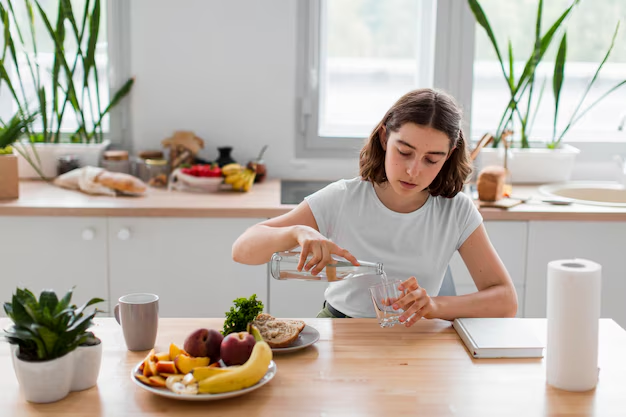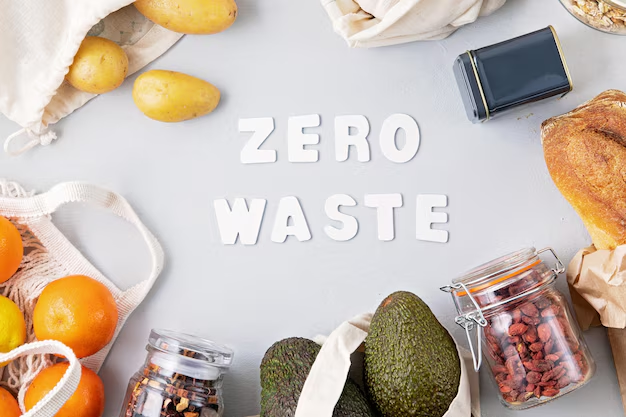In today’s world, sustainability is more important than ever, and reducing waste is a powerful way to contribute to a healthier planet. Many of our everyday health routines, from skincare and personal hygiene to diet and exercise, involve single-use products, excessive packaging, and habits that unintentionally harm the environment. Fortunately, there are many ways to build a more sustainable, low-waste health routine that supports personal well-being and respects the Earth.
How to Reduce Waste in Your Daily Health Routine In this blog, we’ll explore practical tips for reducing waste across various aspects of your health routine, helping you make choices that are both eco-conscious and beneficial for your body and mind.
Rethink Personal Care and Skincare Products
Personal care routines can be one of the biggest sources of waste, with plastic packaging, single-use items, and disposable containers being common in skincare, oral care, and hair care products. Here’s how to reduce waste without compromising on care:
A. Choose Sustainable Packaging and Refillable Options
Many personal care companies now offer products in recyclable, biodegradable, or refillable packaging.
- Opt for Glass or Aluminum: Glass jars and aluminum tubes are more easily recycled than plastic. Look for brands that use these materials for products like lotions, oils, and cleansers.
- Refillable Programs: Some brands offer refill programs, where you can order refills instead of buying new containers each time. This reduces plastic waste and can save money.
- Bar Products: Solid shampoo, conditioner, and soap bars reduce the need for plastic packaging entirely. They’re effective, long-lasting, and often come in compostable packaging.
B. Simplify Your Routine with Multi-Use Products
Using products that serve multiple purposes can help you reduce the number of containers you buy and ultimately reduce waste.
- All-in-One Moisturizers: Some moisturizers work well for both face and body, eliminating the need for separate products.
- Natural Oils: Jojoba, coconut, and almond oils can work as moisturizers, makeup removers, and even hair conditioners.
- Toning and Cleansing Bars: Many brands offer multipurpose cleansing bars that can double as face washes or gentle exfoliators.
Reducing the number of products in your routine also means less clutter and a more streamlined, low-waste regimen.
Make Greener Oral Hygiene Choices
Oral care products like toothbrushes, toothpaste tubes, and floss are often not recyclable, contributing to unnecessary waste. Here’s how to green up your oral hygiene routine:
- Switch to Bamboo Toothbrushes: Bamboo toothbrushes are biodegradable and can replace plastic toothbrushes. Look for brands with compostable bristles for a fully eco-friendly option.
- Use Toothpaste Tablets: Toothpaste tablets are a waste-free alternative to traditional toothpaste tubes, which are hard to recycle. Tablets are usually packaged in recyclable or compostable containers.
- Opt for Silk or Compostable Floss: Traditional floss is made from nylon, a type of plastic. Instead, look for silk floss or other compostable options that come in refillable glass containers.
By making small swaps in your oral care routine, you can significantly reduce plastic waste without sacrificing quality.

Sustainable Nutrition and Food Choices
A major part of any health routine is what we eat. Unfortunately, food packaging and single-use plastics are major contributors to environmental waste. Here’s how to make your diet more sustainable and low-waste:
A. Shop in Bulk and Use Reusable Containers
Buying in bulk reduces the amount of packaging waste associated with individual products and can also save you money.
- Bring Your Own Containers: Many bulk food stores allow customers to bring their own containers. Use glass jars or cloth bags for items like grains, nuts, and dried fruits.
- Choose Larger Packaging: If you can’t find bulk items, opt for larger containers instead of individually packaged portions. For example, buy a large tub of yogurt rather than multiple single-serve containers.
B. Minimize Food Waste
Food waste is a major contributor to environmental harm, but planning meals carefully can help minimize it.
- Plan Meals and Use Leftovers: Meal planning allows you to buy only what you need. Make a habit of using leftovers creatively for other meals.
- Compost Food Scraps: If you have space, composting is an excellent way to repurpose food scraps, creating nutrient-rich soil for plants.
C. Prioritize Plant-Based Meals
Eating more plant-based meals not only benefits your health but also has a lower environmental impact than animal-based diets.
- Experiment with Meatless Days: Reducing meat consumption just a few days a week can make a difference.
- Focus on Local and Seasonal Produce: Seasonal produce has a smaller carbon footprint, as it requires less energy for transportation and refrigeration.
These simple changes can make your nutrition routine more sustainable and help reduce food-related waste.
Eco-Friendly Fitness Habits
Our fitness routines can also generate waste, from single-use plastic bottles to synthetic workout clothes. Here are ways to stay active while being eco-conscious:
A. Use Reusable Water Bottles and Towels
One of the simplest ways to reduce fitness-related waste is to avoid single-use items.
- Bring a Reusable Water Bottle: Invest in a high-quality, reusable water bottle made from stainless steel or glass. Many fitness centers now have refill stations to make it easy.
- Use a Washable Towel: Instead of disposable wipes, bring a washable towel to the gym. It can be washed and reused, significantly reducing waste.
B. Choose Sustainable Workout Gear
Fast fashion isn’t just for streetwear—many fitness brands release new lines frequently, often made with synthetic materials that don’t decompose.
- Buy Quality Over Quantity: Look for durable, versatile workout clothes that will last. Choosing quality over quantity can save money in the long run and reduce waste.
- Opt for Sustainable Fabrics: Look for workout clothes made from organic cotton, bamboo, or recycled materials. Many eco-conscious brands offer sustainable activewear options.
Adopt a Minimalist Approach to Health Products
Our culture often promotes buying more products for better health, but adopting a minimalist mindset can help you reduce waste and simplify your routine.
- Declutter and Reevaluate: Go through your health products and see if you can pare down. Donate unused items to friends or shelters if they’re still sealed.
- Purchase Only What You Need: Before buying new supplements or products, ask yourself if you truly need them or if you’re being influenced by trends or marketing.
- Mindfully Experiment: Try to resist impulse purchases and focus on items that add true value to your health and wellness routine.
By reducing unnecessary purchases, you’ll save money, cut down on waste, and create a routine that’s easier to manage.

Track Your Progress and Stay Mindful
As with any change, tracking your progress can help you see the impact of your efforts and stay motivated.
- Keep a Sustainability Journal: Note any changes you’ve made, like swapping to reusable products, reducing food waste, or choosing plant-based meals. Tracking helps you visualize your impact.
- Celebrate Small Wins: Every little step counts. Celebrating small wins, like going a week without using disposable products, can help you stay encouraged.
- Educate Yourself and Share: Sustainability is a journey, and there’s always more to learn. Share your experiences with friends and family to inspire others and reinforce your own commitment.
With mindfulness and persistence, reducing waste in your health routine can become a rewarding, impactful habit.
Conclusion
Reducing waste in your daily health routine isn’t just beneficial for the planet—it’s a meaningful way to live more mindfully and improve your overall well-being. From selecting sustainable personal care products to making eco-conscious nutrition and fitness choices, every small step you take contributes to a healthier planet and lifestyle.
By integrating these habits into your daily routine, you’re not only supporting your health but also playing a part in creating a sustainable future. Waste reduction is a journey, but with small, consistent steps, you can make a positive impact on both your health and the environment.

